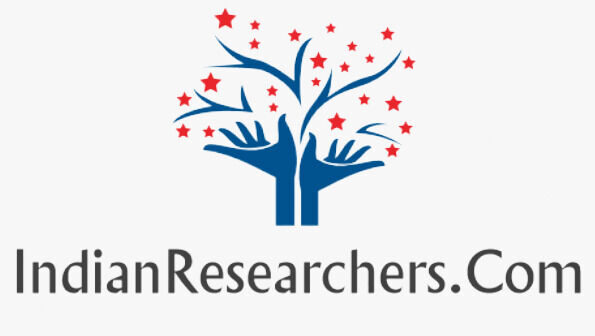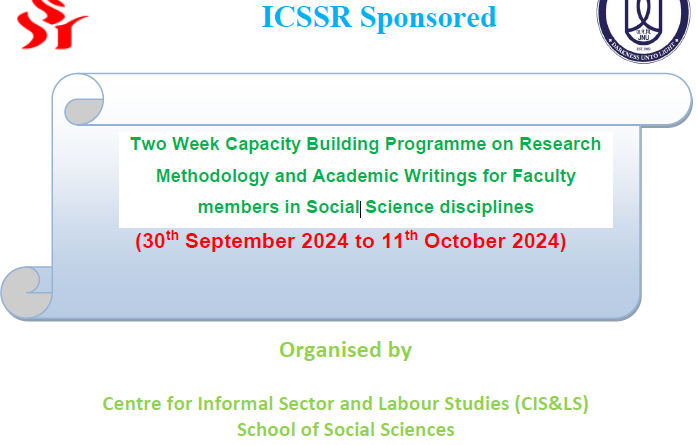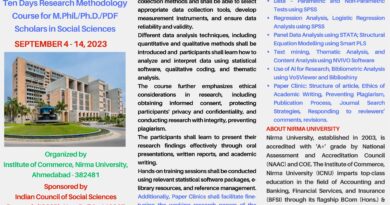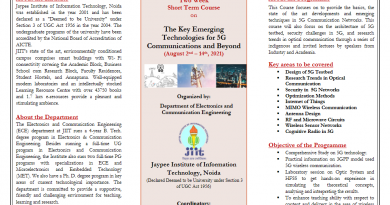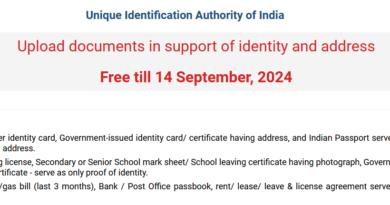Two Week Capacity Building Programme on Research Methodology and Academic Writings for Faculty members in Social Science disciplines
About the Capacity Building Programme:
Capacity-building on an individual level requires the development of conditions that allow participants to build and enhance existing knowledge and skills. It also calls for the establishment of conditions that allow individuals to engage in the “process of learning and adapting to change”. Research is a simultaneous process of thinking, studying, analysing, and writing. Social science research is characterized by the diversity of theoretical perspectives, methodological strategies, data collection practices and analysis techniques. This has made it always necessary to provide training and orientation on a continuing basis to young faculty members to equip them with methodological skills. A basic requirement for high quality research in Social Sciences is the training in the science and art of doing research. While the philosophical basis of social science research is common to social sciences generally, different subjects have evolved their own theoretical frameworks and research procedures/techniques. However, scholars engaging themselves in interdisciplinary or multidisciplinary research need to familiarize themselves with the research strategies of disciplines other than those in which they are trained. Moreover, from the stage of the research problem to the ultimate reporting and publication of the findings, there are several aspects in which a good researcher has to refine his skills. This programme aims to give exposure to in-service faculty, preferably lecturers/assistant professors in social science disciplines, to the latest advances in their subjects, technological spin-offs, etc., and enhance their general methodological and writing skills.
The research methodology training Programme is designed to facilitate the initial phase of designing and planning a research work in social sciences by giving faculty members a clear overview of the basic elements of research writing common to social sciences. The training program will introduce the essential elements of writing a thesis (issue, contexts, texts, methodology and voice). After introducing these concepts, the training Program will give faculty members the opportunity to articulate these concepts in their own research issues. The training Programme will orient the participants about various components of research, i.e., epistemology, methodology and method, and simultaneously organize discussion sessions on how to write research proposals, research thesis and research articles during their research work. The training Programme will focus on developing the skills of identifying the basic elements of description, analysis and argument, and incorporating them into their writing practice.
Learning Outcomes
At the end of the Training Programme, the participants will be able to:
- Become familiar with the core components of a research work, i.e., writing synopsis and thesis.
- Articulate these components in relation to own research work.
- Engage in critical evaluation of each of these elements in relation to the own research work.
- Learn to identify differences between description, analysis and argument in social science writing.
- Learn to conceptualize research paper writing in social sciences.
- Guide participants for collaborative and multidisciplinary research in the areas of social science and allied disciplines.
Course Contents:
The course has been designed in a modular format with emphasis on interactive sessions, exercises and discussions on sample research papers/outlines prepared by the participants during the training. The course would benefit the participants from all social science disciplines. The course will focus on identifying the research issues, formulation of objectives and hypotheses, research design, data analysis tools, selection of statistical methods, and use of computers for data processing. The course content will include the following main topics and will be based largely on the course outlines developed by the
ICSSR as given on the ICSSR website.
Broad Themes:
- Theoretical approaches to social science research: Nature, Scope and Theory
- Research Design: Selection of a research problem, formulating hypotheses and indicators, methods of sampling and inference, research documentation
- Library Skills and Resources
- Strategies in social science research: qualitative, quantitative and mixed methods
- Formulation of Research Objectives, Hypothesis formulation, Sampling Techniques.
- Data sources: Methodological skills for Generating primary data
- Techniques of Data Analysis.
- Computer Software of Data Processing.
- Academic writings: research articles, commentary, book reviews, insight, discussions and notes
- Issues of research: poverty, deprivation, social inclusion, rural development, human rights, ethical and gender issues
- Project proposal development, evaluation report, concept paper
- Consolidation of research findings, research report and dissemination
- Policy research and policy influencing through research findings
- IT applications in social science research
- Referencing
- Future directions and opportunities for interdisciplinary research
Resource Persons:
The resource persons from different parts of the country representing the leading institutions/universities will provide expertise in the workshop.
Duration of the Programme:
The Capacity Building Programme has been scheduled for two weeks, from 30th September 2024 to 11th October 2024.
Eligibility for the Participants:
The Capacity Building Programme is intended for young faculty members (Lecturer/Assistant Professor in social science) working in Indian Universities/Deemed to be Universities/Colleges/institutions of national importance/ ICSSR research Institutes recognized by UGC, New Delhi.
Intake:
There should be at least thirty (30) participants from social science disciplines of which ten (10) from the city, ten (10) from the state and ten (10) from outside the state.
Note:
- Those who have already attended any such program sponsored by ICSSR or any other sponsored organization should not apply
- No leave of any kind is permissible during the course period
- Recommendation letter of Forwarding Authority
Registration Fee:
The CBP is fully sponsored by ICSSR, New Delhi, hence, no fee is charged from the participants.
Accommodation and Travel Allowances:
- Accommodation will be provided to the outstation participants only
- Breakfast, Lunch, Dinner and Refreshments for all participants will be served
- Travel allowances for the shortest distance will be reimbursed to the outstation participants only as per the ICSSR guidelines (AC 3 tier) and will be subject to the production of original tickets.
- No local conveyance would be reimbursed.
How to apply:
Interested candidates can apply to the Course Director with the duly filled registration form on or before 5th September 2024. The registration form is enclosed with this notification. Registration form and brochure can also be downloaded from the University website, www.jnu.ac.in. The candidates are required to send the filled registration form through online by visiting the given google link https://forms.gle/5RruJCs2fcdoVWaQ7
Duration of the course, important dates & venue:
- Last date for the receipt of application form: 5th September 2024
- Selection to be communicated: 8th September 2024
- Confirmation to be communicated: 10th September 2024
- Workshop/Course Dates: 30th September 2024 to 11th October, 2024
- Venue: Centre for Informal Sector and Labour Studies (CIS&LS), SSS, JNU
Prof. Minaketan Behera (Course Director)
Dr. Kali Chitti Babu (Course Co-Director)
Centre for Informal Sector and Labour Studies (CIS&LS)
School of Social Sciences
Jawaharlal Nehru University
New Delhi-110067
————————————————————————————————————-
Note: For any further information, participants may contact Course Director (Mob: +919868045446, +91 919773683904; e-mail: minaketan@mail.jnu.ac.in, chitti4479@gmail.com )
